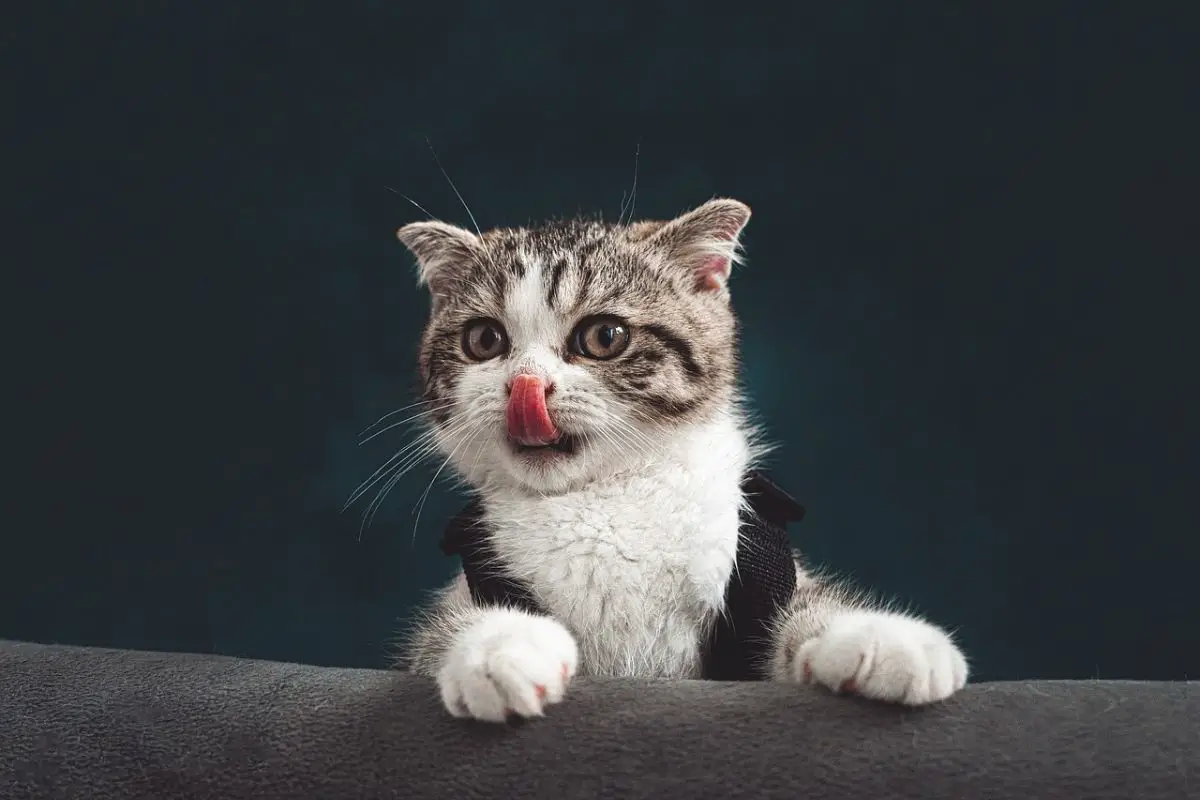If you are a cat owner who also loves taking care of succulents, you must be very curious and wondering, “Why is my cat eating my succulents?”. No need to worry, you are not alone! Cats have a natural curiosity and may easily find succulents interesting.
In this article, we’ll explore the reasons behind this peculiar behavior and figure out if it’s harmful to our furry friends.
Why is my cat eating my succulents?
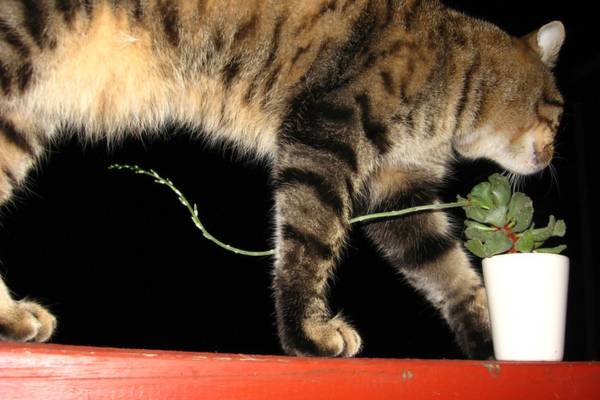
Cats may eat succulents because of their texture and appearance, which can also trigger their behavioral response to curiosity or boredom. Consider taking care of non-toxic succulents to prevent causing severe harm to your fur pet.
Key Takeaways:
- Cats naturally want to discover new things in their environment and may find succulents interesting.
- Felines can safely ingest most succulents, but some are toxic to them.
- If your cat shows signs like vomiting and diarrhea, immediately call the doctor, as it could be a sign of plant poisoning.
Are cats attracted to succulent plants?
Regarding felines and succulents, different cats may have different reactions. While some cats may find these plants uninteresting and simply ignore them, others may be intrigued by their presence. These curious cats might explore the succulents by touching them with their paws or tasting them.
People have long recognized cats for their innate curiosity, which has become synonymous with their feline nature. The popular saying, “Curiosity killed the cat,” has even arisen due to this enduring trait. This saying highlights the unavoidable dangers that cats face as they explore their surroundings with a constant need to discover and understand the world around them.
Is it bad if my cat eats a succulent?
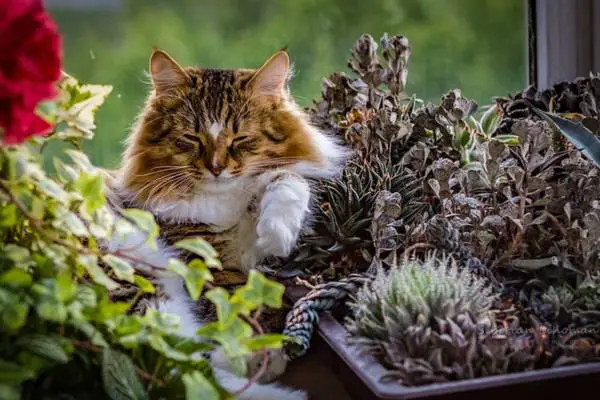
With over 1,000 different types of succulents around the world, it’s normal to feel worried about your cat if you see them eating a succulent. The good news is that most species of this flora are considered edible and safe for your furry friend.
Succulents that are safe for cats
- Mexican Peacock Echeveria
- Chines money plant
- Hens and chicks
- Dragon fruit cactus
- Ghost plant
- Christmas cactus
- Thanksgiving cactus
Succulents that are poisonous for cats
- Aloe vera
- Panda plant
- Jade plant
- Mother of thousands
- Silver Jade plant
- Snake plant
- String of pearls
- Chandelier plant
However, it’s still important to consider that some types of plants have bristles or thorns on them that may cause harm to your cat, even though most of them are safe and not toxic. So you should still exercise caution, especially when there is one inside the house that they can easily access.
What happens if cats eat plants?
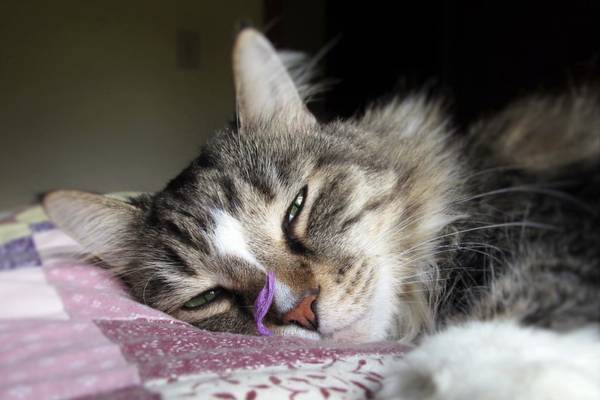
If you are very worried about the thought of your cat eating a succulent, but you have no idea whether or not it’s dangerous for him, then you should check for symptoms that they really ingested a harmful succulent:
- Vomiting
- Pain in the stomach
- Drooling
- Depression symptoms
- Diarrhea
- Itching or soreness in the mouth
- Diarrhea with blood
- Lack of energy
- Collapse
- Abnormal heartbeat
- Having trouble breathing
- Fatigue
Do this if your cat ate a succulent plant
If your feline shows some of the signs stated above, you should call and bring him to the nearest available Veterinarian. These signs may indicate that your cat has ingested a toxic succulent and requires immediate medical attention. It’s also important to identify the type of plant ingested so that the doctor will know what kind of treatment to give to the cat.
If you aren’t sure what kind of plant he ate, make sure to bring a sample of the plant with you. Some medications may include activated charcoal to absorb any toxins remaining in the gut and even anti-inflammatory medicines if the damage has already severely affected the gastrointestinal tract.
Keeping your cats away from these plants
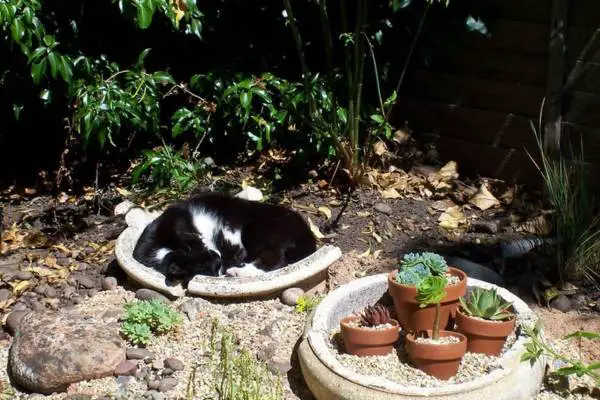
If your cat is very curious and constantly nibbles your plants, having both succulent and feline pets can be very challenging. Luckily, you can do certain things to avoid this and keep your plant and furry friend from harming each other.
Use coffee grounds
Cats naturally incline towards soil because they instinctively use it for bathroom activities. As a result, they often get drawn towards areas where soil is present, such as your succulent plants.
This is where their innate curiosity comes into play, and you can use ground coffee as a simple and effective method to prevent this. Just a light dusting of ground coffee around the base of your plants can act as a natural deterrent to keep cats away from your precious foliage.
Spray the plants
Try spraying a citrus aroma on the plants to prevent your cats from being attracted to your succulents. Cats dislike the scent of citrus, so you can incorporate this fragrance into the water by combining it with oil, and then spray it on your plants.
Put them in cages
If you can’t stop your cats from eating your plants, even after spraying them with smells they don’t like, you may need to take a more direct approach. One way to deal with this problem that keeps coming up is to give your plants their cages. By keeping them in these carefully made spaces, you can create a safe and controlled environment that keeps your plants from getting hurt while ensuring the well-being of your furry friends.
Final Thoughts
Understanding why your cat is munching on your succulents for both pet and plant well-being is crucial. Cats may chew on them out of curiosity or boredom, and to address this issue, you can either spray and sprinkle fragrances they dislike or even place the succulent in cages or inaccessible areas for your feline friend.
Sources:
- “Are Succulents Safe To Have Around My Cat?”, L. Taylor, The Dodo, November 9, 2021, thedodo.com
- “5 Smells Cats Hate vs. Smells Cats Like”, D. Brannon, Enrichment & Play, Scientific Studies, December 27, 2017, frontpagemeews.com
- “Some Plants Can Make Your Cat Sick”, Columbia Veterinary Emergency Trauma and Specialty, May 16, 2018, cvets.net

